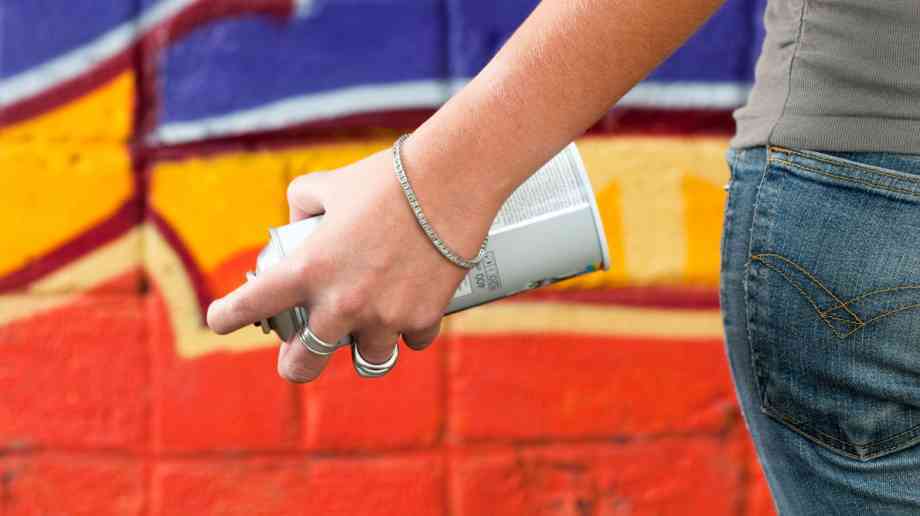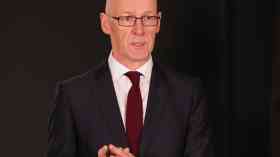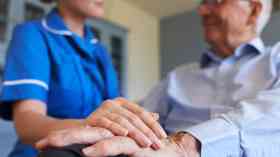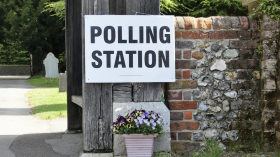Sue Robb of 4Children talks to Julie Laughton and Alison Britton from the Department for Education about the role of childminders in delivering the 30 hours free entitlement.
Commission on Young Lives report aims to reduce school exclusions

A new report from the the Commission on Young Lives calls for all schools to become more inclusive.
The report, 'All Together Now: Inclusion not exclusion - supporting all young people to succeed in school' makes a series of recommendations for how schools can be supported to divert vulnerable teenagers away from crime and exploitation and enable them to thrive.
The number of children excluded from school rose by 5% in the autumn of 2019 compared to the same period the previous year. Permanent exclusion figures have seen a gradual rise from 5,082 in 2010/11 to 7,894 in 2018/19, before Covid.
The report highlights the disadvantages and dangers that falling out of school can have on some young people and highlights the scale of the challenge facing the education system.
Its proposals include a ban on primary school exclusions from 2026, alongside support and resources for schools to provide specialist provision that keeps children on the school roll. Removal of a child from secondary school becomes a genuine last resort, and is only possible following a programme of support and when it is signed off by the CEO of an academy school or MAT, or the DCS in a local authority school.
Anne Longfield, Chair of the Commission on Young Lives, said:
"Over recent years, we have seen the growth of an exclusions culture that perversely rewards removing some vulnerable children from school roll. That must not continue. We need a new culture of inclusion and accountability, that recognises and rewards nurture and which sticks with children and families from cradle to career.
"This does not mean that our ambitions for academic achievement and high standards of behaviour should be lowered - far from it. Our ambition must be for all children to feel learning and achievement is for them, and to feel school is somewhere that they want to be."
Rev. Steve Chalke, founder of Oasis, which hosts the Commission on Young Lives, and runs 52 academy schools across England said:
"Our society will not flourish until we provide safe and inclusive education for all children and young people. Without it, not only will it be impossible to end the epidemic of teenage violence and exploitation, but we will never create equity of opportunity for every child. This is why Oasis hosts the Commission on Young Lives, and why we work, through our schools and youth work, for the inclusion of every child, every day."
Responding to the report, Cllr Lucy Nethsingha, Deputy Chair of the Local Government Association’s Children and Young People Board, said:
“Councils share the concerns over the number of children falling through gaps in the education system.
“We are looking to the Queen’s Speech for government to bring forward legislation to ensure all children, including those with special educational needs and disabilities who are more likely to be excluded from school, can benefit from being in full-time education.
“Schools should also be incentivised to ensure that children are able to access the formal full-time education they are entitled to. Councils want to work with government to make swift changes to legislation to make the education safety net more robust, for the benefit of current and future generations of young people and society overall.”
Company Focus
Located in Bromley, Japanese Knotweed Eradication Ltd has been providing solutions in the treatment and removal of Japanese Knotweed (Fallopia Japonica) for over a decade. During this time we have mastered a repertoire of methods, from herbicidal treatments to landscaping solutions, tailored to address the unique challenges our clients face with this pervasive weed.
Event Diary
UKREiiF has quickly become a must-attend in the industry calendar for Government departments and local authorities.
The multi-award-winning UK Construction Week (UKCW), is the UK’s biggest trade event for the built environment that connects the whole supply chain to be the catalyst for growth and positive change in the industry.
Supplier Profiles
Geo Energy
At GeoEnergy Design, we're on a mission to disrupt the traditional way heating and cooling ha
Latest Features
Professor Harith Alani, director of the Knowledge Management Institute at the Open University explains how AI can be used for good and bad.
Alex Lawrence, head of health & social care, techUK sets out techUK’s Five Point Plan for CareTech.

















